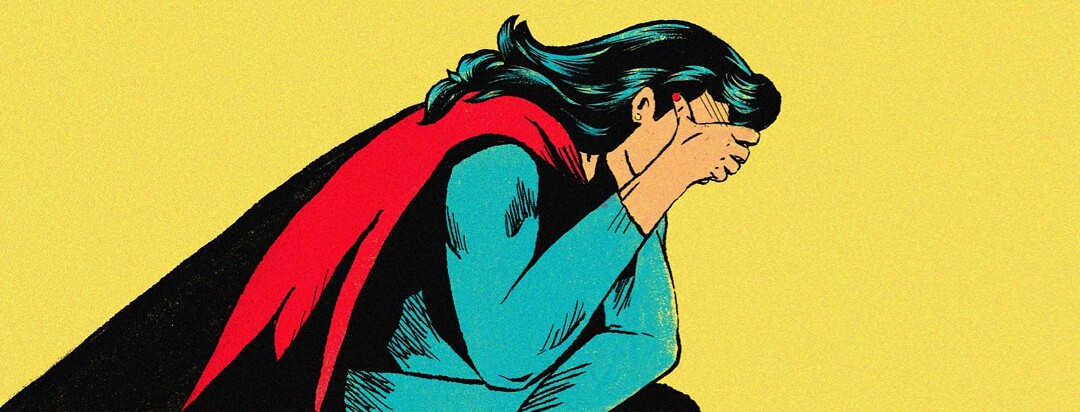Superwoman Syndrome: The Reality of Alzheimer's Caregiving
Look up in the sky! It's a bird! It's a plane! It's a… caregiver suffering from Superwoman Syndrome. Can you relate to this? In the last year of caregiving through a global pandemic, I have learned a lot about myself. For one, giving care for someone with Alzheimer's while social distancing from the world is a lot harder than it looks, and as much as I would like to think that "I GOT THIS," I have learned that it's okay, yes friend, it IS OKAY to allow time for respite, reach out to your care team community, and to be honest about the progression of this cognitive disease (whoa, did I really just say that?).
The Alzheimer's caregiver reality: Unmasking burnout
Faster than a caregiver experiencing burnout… I found myself doing everything without taking time to replenish my own energy. Something I learned along my 10-year journey as my mom's full-time caregiver is that I take a lot of pride in being the one responsible for her health. I wear it as a badge of honor when the doctor reports that Mom's overall physical state is strong and that she looks great for someone in the end stages of Alzheimer's.
I see it as an outstanding achievement. Sure, I don't remember the last time I connected with my friends or enjoyed a moment to read a book or binge on Netflix. It is my badge and I wear it proudly (right…?) as I extend all my energy on Mom and neglect my own needs. Wait, what? Let's pause for a moment here because I think I just said something so outrageous. I said I neglect my own needs?! Well, that just isn’t the way. This can not be a great achievement because caregiver burnout is NOT a badge of honor.
Forming a care team community
More powerful than a stack of medical supply bills… that I HAD to pay out of pocket because I didn't know help was available through insurance, a social worker, or my mom's doctors, who could offer insights I wasn't privy to. At the start of the pandemic, as in-person appointments shifted to virtual ones, I became extremely familiar with what I would later come to call my mom's care team community. This community was composed of Mom's neurologist, primary doctor, social worker, and insurance representatives. Plus, I don't know about you, but I thoroughly enjoy not paying for supplies that can be provided for free!
Doing your best counts
Being able to leap through tough realities in a single bound allowed me to land on the conclusion that if I did my very best in caring for myself AND for my mom, then I have done all I could. And that is enough. Being honest with myself about the reality of the disease was harsh because the reality is that this is progressive.
Although the progression of the disease was no reflection on the rockstar care I was giving my mom, it was still hard to witness her cognitive and physical decline. The reality was that mom would get continually worse; she would soon forget who I was, forget how to brush her teeth, and forget how to be my mom. Sure, for the past length of time I had been caring for my mom, she showed signs of stable behavior, to say the least, but every day it was undeniable that I was losing more and more of my sweet ma’dukes.
Embracing the reality of Alzheimer's
Making space for respite, asking questions to the care team community, and embracing the reality of the disease are some of the ways I used to get out of Superwoman Syndrome. I had not realized until the pandemic how much of the "I GOT THIS" energy was causing the syndrome, but once I did, I was thankful to learn that about myself and address it accordingly.
How do you cope with caregiver burnout and the reality of caregiving? Let us know your self-care tips here
Interested in more on progression and support through Alzheimer's? Check out Alzheimer's Progression: Support Through the Stages.

Join the conversation